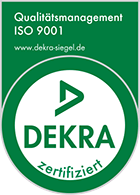From neonatal stations to nursing homes
Medical scales include baby scales and traditional person scales with analogue or digital display. More modern devices are body fat scales and scales with a built-in BMI function that are not only used by people who want to stay healthy but also in medical clinics. Many different types of medical scales for stationary use are found in hospitals, nursing homes and rehabilitation clinics. In many cases, the patients have no or very limited mobility, so that they need to be weighed together with the bed or the wheelchair.
Medical scales need to be verified by law
Only scales that have been officially verified in class III (industrial scales) may be used in medical facilities. Medical scales designed for stationary use (in particular bed and floor scales) must normally be re-verified every four years. Standard person scales in GP practices do not require reverification (with the exception of baby scales that need to be re-verified every two years). Person scales in private homes or scales rented from pharmacies (e.g. baby scales) do not require verification. This also applies to lifter scales that are sometimes bought by people who care for family members in their own home. The requirement of verification for medical scales arises from the EU Directive 93/42 EEC governing medical devices. The directive also stipulates that medical scales need to be verified prior to delivery by the manufacturer.
Health insurance companies only pay for verified devices
For medical scales, verification is not only required for accuracy in connection with diagnoses and treatment, it is also demanded by health insurers who never cover unverified medical equipment. In Germany, verified person scales come under the regulations of the social welfare act and are therefore generally classified and covered by health insurance companies as medical devices. Medical scales are available for a wide range of special applications and with an equally broad variety of features – for battery or mains power operation, with data interfaces (USB/RS232), built-in printer, intermediate tare function for weight measuring during treatments (e.g. dialysis), etc. Especially the larger scales, such as modern bed scales, are complex technical devices that support computer-assisted data evaluation and documentation.
















